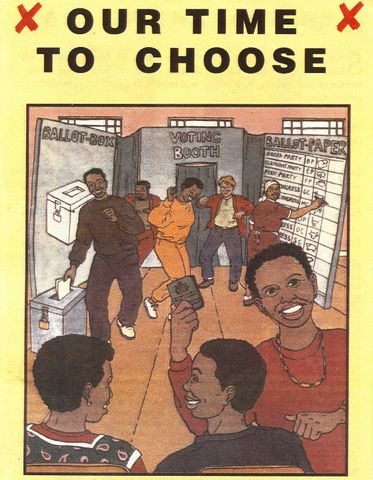Symposium
Truth and Justice
Discussion with Ben Khumalo-Seegelken, Antjie Krog and Dumisa Buhle Ntsebeza, moderated by Bernd Pickert
with simultaneous translation into English and German

The Truth and Reconciliation Commission (TRC) created by Nelson Mandela and directed by Desmond Tutu has been widely credited for its contribution to the transitional process. It served as a benchmark for post-conflict processes and transitional justice; around 18 truth commissions were created worldwide following its example. Nevertheless strong criticism has been voiced, pointing mainly to the fact that the structural violence of apartheid was not condemned or that the amnesty to perpetrators of gross violations of human rights gave way to a culture of impunity. Criticism has also focused on the failures to implement the TRCs recommendations. How does South Africa assess its response to its unjust past today? What is the relationship between truth and justice, accountability and reconciliation?
Ben Khumalo-Seegelken is a theologist and professor for education, social sciences, Evangelical theology, and religious education at the University of Oldenburg. After completing his studies in South Africa, he was forced to leave the country in 1975 due to his resistance to the apartheid system. From 1985 to 1986 he was assistant professor for systematic and ecumenical theology at the University of Vienna, after which he served as an Evangelical minister in the Rhineland until 1994. In 2004/2005 he directed an integration center for gay and lesbian migrants and organized the events series “Berliner Tage des interkulturellen Dialogs” (Berlin Days of Intercultural Dialogue).
Antjie Krog is a poet, writer, journalist and professor at the University of the Western Cape. She published twelve volumes of poetry and three non-fiction books. “Country of my Skull” (1998) about the South African Truth and Reconciliation Commission on which she reported as a radio journalist, and “A Change of Tongue” (2004) about the transformation in South Africa after ten years, have been nominated by South African librarians (LIASA) as two of the ten most important books written in ten years of democracy. Her third non-fiction book “Begging to be Black” (2009) deals with learning to live within a black majority. Further she translated the autobiography of Nelson Mandela, “Long Walk to Freedom” into Afrikaans. Krog won all of the prestigious South African awards for non-fiction, translation and poetry available in Afrikaans and English, as well as the Stockholm Award from the Hiroshima Foundation for Peace and Culture for the year 2000, and the Open Society Prize from the Central European University (previous winners were Jürgen Habermas and Vaclav Havel).
Dumisa Buhle Ntsebeza was a commissioner for the Truth and Reconciliation Commission in 1995. He obtained his law degree while imprisoned for political activism in the mid- 1970s and early 1980s. Ntsebeza, on several short term periods has been appointed an acting judge of the High court of South Africa and the Labour Court. Some of his judgments have been a subject of extensive reviews in such academic law journals as the South African Law Journal. In 2004, he was appointed by the UN then Secretary-General Kofi Annan, to serve as a commissioner on the UN International Commission of Inquiry into human rights violations in Darfur, Sudan. In 2005, Ntsebeza became the first African Senior Counsel in the history of the Cape Bar, a society of advocates of the High Court of South Africa. Among other leadership positions in the legal profession, he is the founder member and the President of the National Association of Democratic Lawyers and the President and subsequently the Deputy President of the Black Lawyers Association. Currently he is also the National Chairman of the Advocates for Transformation. Besides being chairman for the companies Barloworld and Equillore Limited, as well as the Desmond Tutu Peace Trust and others, Ntsebeza however, remains a practicing advocate, and holds chambers in Sandton, Johannesburg, as a member of the Victoria Mxenge Group of Advocates.
Bernd Pickert has worked as an editor for taz. die tageszeitung’s foreign desk since 1994. His main topics of focus are human rights, the United States, and Latin America. From 2000 to 2012 he was a member of the board in the taz cooperative, and for the last few years he has sat on the jury for the taz’s Panther Prize.